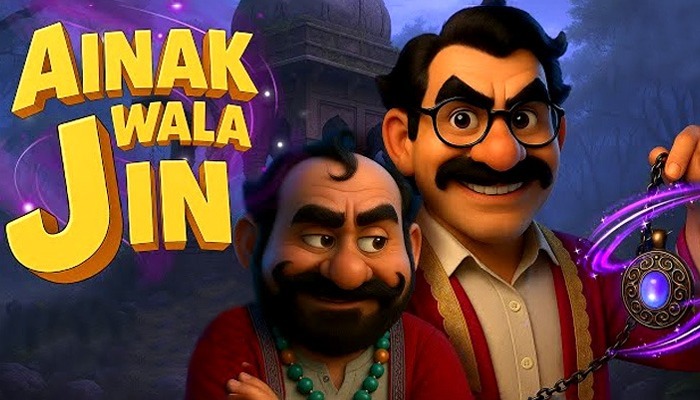In view of the web recording ‘Gradual process,’ the show centers around the less popular stories around the Watergate outrage.
“History isn’t composed by the weak masses — the afterthoughts, the commies, the queers and the ladies. It is composed and reworked by fighters conveying the flag of lords.”
So pronounces G. Gordon Liddy (Shea Whigham) in the initial minutes of Starz’s Gaslit.
In the event that it weren’t at that point clear which camp he sees himself in, the camera gradually zooms out to uncover him holding his open palm over a fire, in a showcase of machismo however futile as it seems to be unpleasantly emotional.
What he doesn’t understand is that the series he’s on is truth be told a background marked by those purportedly weak masses, and not one especially complimenting to “warriors” like him.
Adjusted by Robbie Pickering from the webcast Slow Burn, Gaslit plans to focus a light on the untold (or possibly less popular) stories around the Watergate embarrassment, which is a fine objective all over.
The issue is that it attempts to tell apparently every one of the untold accounts of the Watergate embarrassment without a moment’s delay, crushing them together into one erratically entertaining yet ridiculously lopsided miniseries.
There’s likely a very decent element film covered some place in those eight hourlong episodes, seven of which were shipped off pundits.
In particular, a very decent component film about Julia Roberts’ Martha Mitchell, the candid spouse of Nixon principal legal officer John Mitchell (a conscious heap of prosthetics I’m told is Sean Penn).
After a specialist traps her in a lodging to hold her back from uncovering reality with regards to the Watergate break-in, Martha blows the whistle at any rate — just to be openly spread by Nixon’s staff as a distrustful, hallucinating savored a work to dishonor her record.
Roberts is stunning in early episodes as Martha, who appears to go through her days swanning through DC parties like she claims the room and everybody in it (doubtlessly stirring up a lot of anger for her significant other’s associates), and afterward ringing up her writer companions to share the hot goss from said parties (additionally to the wrath of her better half’s partners).
At the point when Martha’s story takes its dull turn, Roberts strips back her thick layers of Southern appeal to uncover an additional weak side, her physical and enthusiastic injuries filling in as a declaration to the lengths of mercilessness that the president’s acolytes were ready to go to serve him.
Or on the other hand maybe the film is a dark parody with Whigham’s divertingly, startlingly extraordinary Liddy at the middle, encompassed by turning cast of yellow, brainless idiots like White House lawyer John Dean (Dan Stevens), head of staff H.R. Haldeman (Nat Faxon), helper Jeb Magruder (Hamish Linklater) and political counselor Charles Colson (Patton Oswalt).
The joke of their scenes in Gaslit is that they appear to trust they’re in a smooth government agent spine chiller or a significant political show or, for Liddy’s situation, a dull conflict epic a la Apocalypse Now.
In the interim, their weakness and ineptitude feels more like something drafted by Armando Ianucci or the Coen siblings.
Perhaps there’s even an insightful little show to be made about Frank Wills (Patrick Walker), the Watergate safety officer who previously saw and detailed the break-in, and whose life was wrecked by the subsequent notoriety.
Or on the other hand the far-fetched romantic tale between John Dean and his more charming, liberal-inclining spouse Mo (Betty Gilpin), who unreservedly concedes to having detested him from the start.
In any case, it’s not the slightest bit clear what this multitude of stories are doing as a feature of a similar miniseries, and they experience the ill effects of being lumped together.
Martha’s nerve racking story feels lightweight on the grounds that Gaslit can’t offer her injury the gravity and consideration it needs — not when it likewise needs to remain light to the point of conveying a strange sham about blundering political agents.
Which, thus, becomes swollen by subplots like John and Mo’s sentiment, when Gaslit couldn’t mount a convincing case about what those two at any point found in one another, or why we ought to mind in any case. It lacks the opportunity to, when it has that large number of different storylines to get to.
It isn’t so much that nothing works. I heaved at a portion of Martha’s most terrifying and saddest minutes, and cooed at an episode six deviation about Frank searching for his lost feline.
To be completely forthright: I’m an absolute feline individual.
In and around the White House, the weighty hitting cast inspires laughs from one scene to another, frequently when they’re not in any event, doing much by any means — like when Linklater’s Magruder tensely bats away a butterfly in his front yard, looking just as idiotic and terrible as the FBI specialists following him (played by Chris Messina and Carlos Valdes) have passed judgment on him to be.
Furthermore, Gaslit truly pulls out all the stops with Liddy’s scenes, which by episode seven have had a mental breakdown as to come close to the strange.
Aggregately, these stories attempt to frame another comprehension of Watergate according to the points of view of its improbable, overlooked — indeed, on the off chance that not legends fundamentally, then essentially individuals who aided drive it forward. In this rendition, the as far as anyone knows significant and strong white men of the White House assume a lower priority in relation to Martha the Mouth, to a Black safety officer, to a Latino FBI specialist, to clever political spouses like Mo who helped their thrashing husbands explore the aftermath of the outrage.
However, the singular portions feel excessively loose and unfocused, with too many bumping apparent movements and too little feeling of story mood, to add up to much understanding eventually.
It appears to be telling that at first, I didn’t understand the series should be eight episodes in length — subsequent to watching the seven I’d been sent, the seventh felt to me like as great a spot to end as any.
It’s a flawless thought, assuming back command over history from those warriors and placing it under the control of the majority. Assuming the series achieves nothing else, it’s ensured to show a couple of crowd individuals stories they didn’t be aware previously.
Just really awful in its chaos, Gaslit stops some place shy of doing them equity.





















